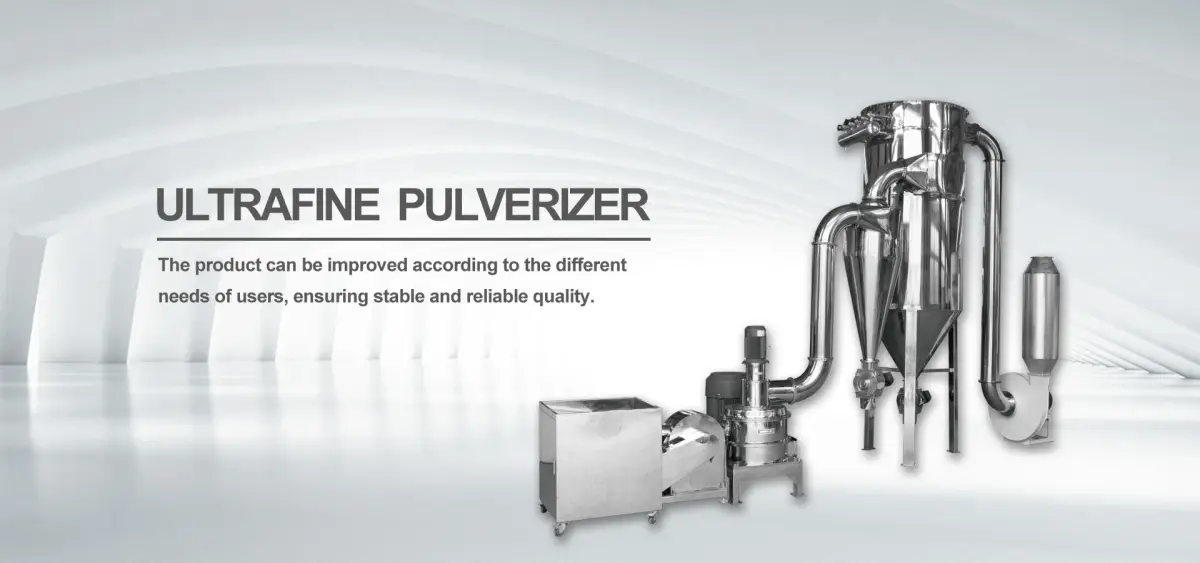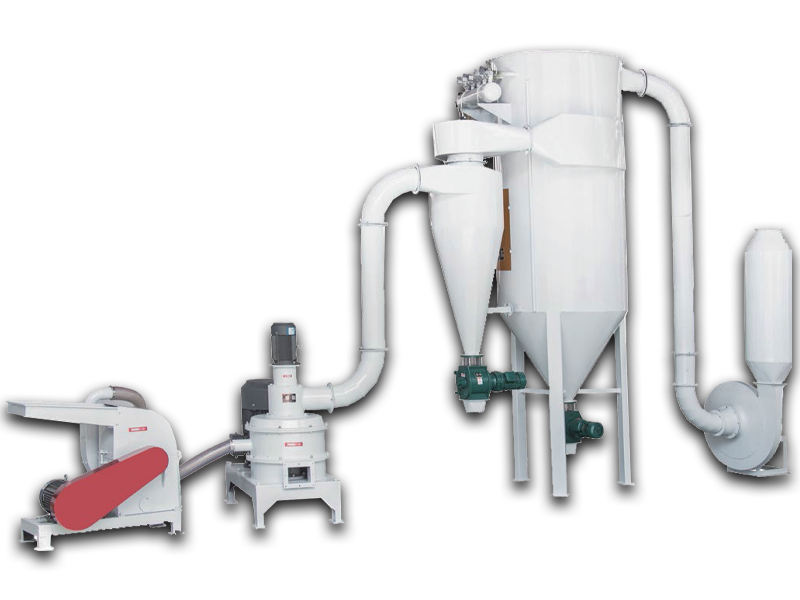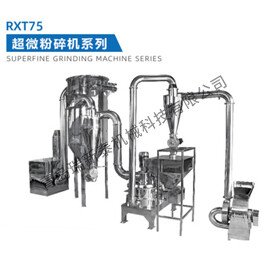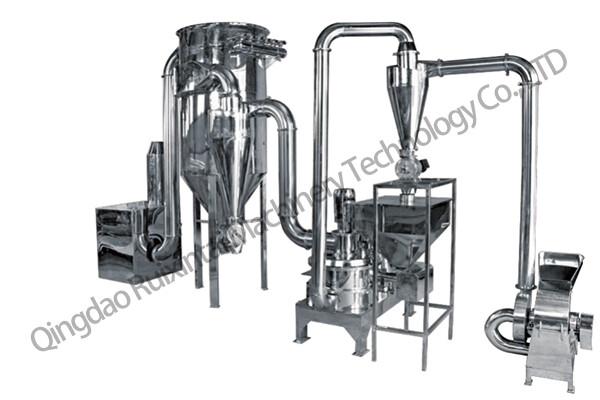RELATED
MESSAGE
Ultrafine pulverizers have become a cornerstone in modern industries, providing efficient solutions for grinding and processing materials into fine powders. As a leading manufacturer in this domain, Ruixintai Machinery Technology Co., LTD (Ruixintai) has consistently pushed the boundaries of innovation. However, the environmental impact of these machines has become a growing concern, prompting companies like Ruixintai to explore sustainable solutions. This article delves into the environmental implications of ultrafine pulverizers while highlighting how Ruixintai addresses these challenges.
Understanding Ultrafine Pulverizers
Ultrafine pulverizers are advanced machines designed to grind materials into extremely fine particles. These machines are widely used in industries such as pharmaceuticals, food processing, and mining. The demand for ultrafine pulverizers has surged due to their ability to produce high-quality powders with consistent particle sizes. For instance, industries relying on custom powder milling often turn to ultrafine pulverizers to meet specific requirements.
Despite their advantages, ultrafine pulverizers can have environmental consequences. The energy consumption during operation, dust generation, and waste management are key factors that contribute to their ecological footprint. Companies like Ruixintai are actively working to mitigate these effects by developing eco-friendly designs and efficient systems.
Energy Consumption
One of the primary environmental concerns associated with ultrafine pulverizers is their energy consumption. These machines require significant amounts of power to achieve the desired particle size, particularly for hard or dense materials. Excessive energy usage not only increases operational costs but also contributes to carbon emissions. Ruixintai has addressed this issue by integrating energy-efficient motors and optimizing machine designs to reduce power requirements.

- Advanced motor technologies to minimize energy loss.
- Precision engineering to enhance grinding efficiency.
Implementation of smart controls to monitor and adjust energy usage.
Dust and Air Pollution
The grinding process in ultrafine pulverizers often generates fine dust particles, which can become airborne and contribute to air pollution. Prolonged exposure to such particles can pose health risks to workers and nearby communities. Ruixintai has introduced innovative dust collection systems to address this issue. These systems are designed to capture and filter dust particles, ensuring cleaner air and safer working environments.
Additionally, Ruixintai’s commitment to custom powder milling enables the company to design machines tailored to specific materials, reducing unnecessary dust generation during processing.
Waste Management
Another environmental challenge is the disposal of waste generated during the pulverization process. Inefficient machines can produce excessive waste, leading to resource depletion and increased disposal costs. Ruixintai has implemented waste reduction strategies, such as reprocessing systems that recycle unused material back into the production cycle. These measures not only minimize waste but also promote sustainable practices within the industry.
Ruixintai’s Approach to Sustainability
Ruixintai has taken proactive steps to address the environmental impact of ultrafine pulverizers. The company’s R&D team focuses on developing eco-friendly technologies that align with global sustainability goals. Key initiatives include:
- Designing machines with lower energy consumption.
- Incorporating advanced filtration systems to reduce dust emissions.
- Promoting the use of recyclable materials in machine construction.
Offering consultation services for sustainable custom powder milling solutions.
Industry Trends and Innovations
The Ultrafine Pulverizer industry is witnessing significant advancements driven by the need for sustainability and efficiency. Companies are investing in research to develop machines that balance performance with environmental responsibility. Some notable trends include:
- Adoption of renewable energy sources to power pulverizers.
- Integration of IoT and AI for real-time monitoring and optimization.
- Focus on modular designs for easy upgrades and reduced waste.
Ruixintai is at the forefront of these innovations, leveraging its expertise to set industry standards. By collaborating with clients and stakeholders, the company ensures that its products not only meet technical requirements but also contribute to a greener future.

Conclusion
Ultrafine pulverizers play a vital role in modern industries, but their environmental impact cannot be ignored. Companies like Ruixintai are leading the way in addressing these challenges through sustainable practices and innovative technologies. By focusing on energy efficiency, dust control, and waste management, Ruixintai is paving the path for a more eco-conscious industry.
The demand for custom powder milling solutions continues to grow, and Ruixintai’s commitment to sustainability ensures that clients receive high-quality products without compromising environmental integrity. As the industry evolves, it is imperative for manufacturers to prioritize sustainability, ensuring a balance between progress and ecological preservation.
CONTACT US
Please use the form below to get in touch.
If you need a reply we will get in touch as soon as possible.



